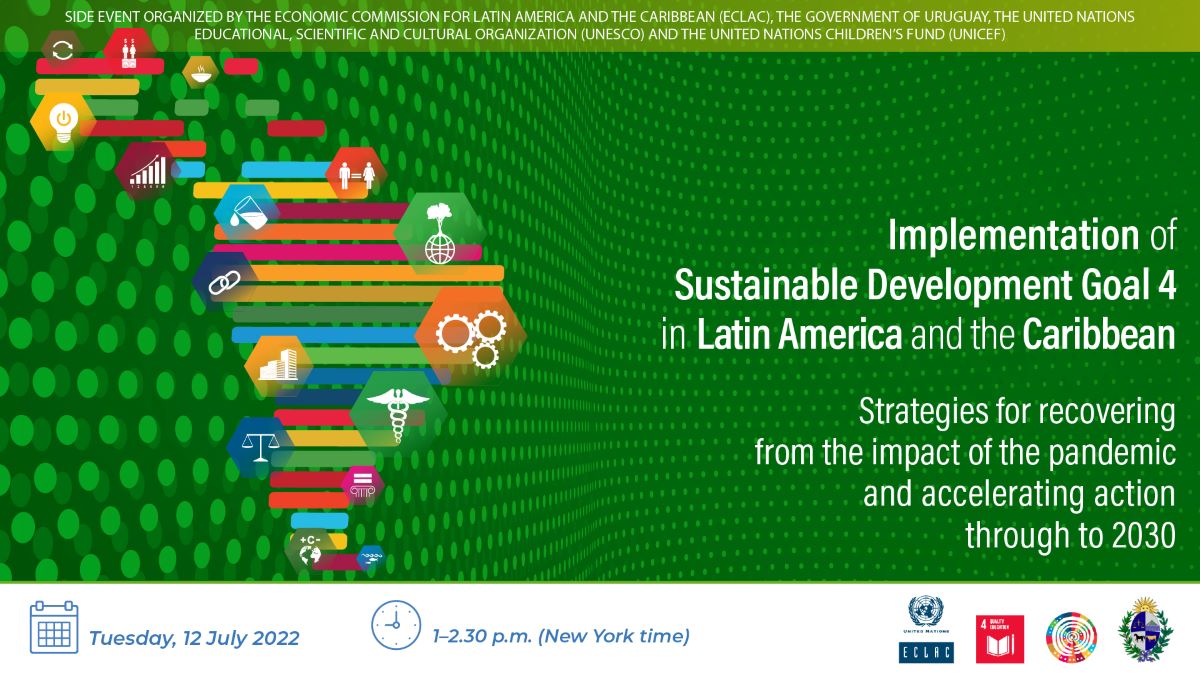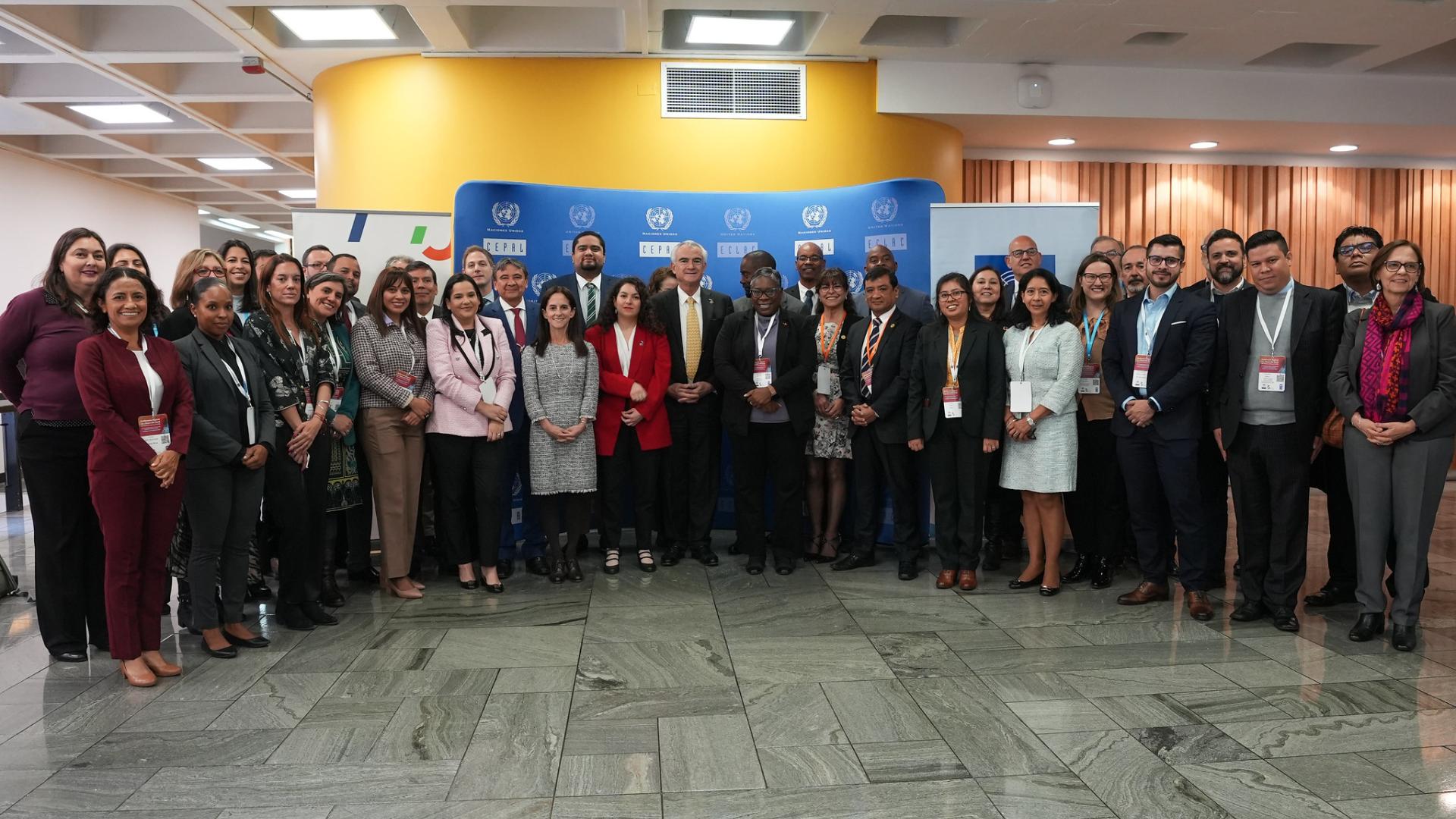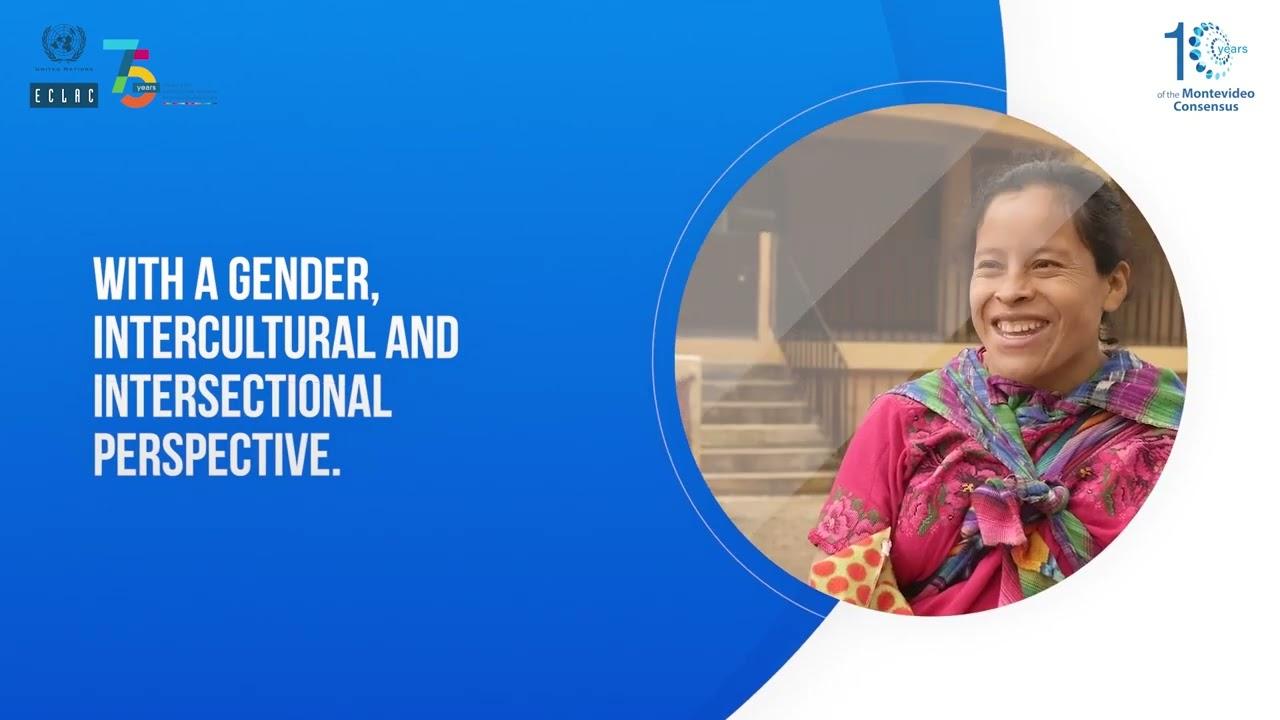Briefing note
Representatives of the Economic Commission for Latin America and the Caribbean (ECLAC), the UNESCO Regional Office for Education in Latin America and the Caribbean (OREALC/UNESCO Santiago) and the UNICEF Regional Office for Latin America and the Caribbean (UNICEF LACRO) met virtually this Tuesday, July 12, 2022 to present the preliminary conclusions of the first Regional Monitoring Report SDG 4 – Education 2030.
At this event – held on the sidelines of the United Nations High-Level Political Forum (HLPF), which is taking place at the global organization’s headquarters through July 15 – the three organizations took stock of the implementation of SDG 4 (which seeks to ensure inclusive and equitable quality education and promote lifelong learning opportunities for all) in Latin America and the Caribbean, analyzing its achievements and identifying the challenges that may guide educational policy decision-making in the next decade, and thus promote compliance with the objectives set for 2030.
Participating as presenters of the report’s conclusions were Alberto Arenas de Mesa, Director of the Social Development Division of ECLAC; Alejandro Vera, Head of the Education Monitoring and Planning Unit of OREALC/UNESCO; and Ítalo Dutra, Regional Education Adviser of UNICEF LACRO. Commenting on the presentations were Carlos Rodríguez, National Director of Teacher Training of El Salvador (on behalf of that country’s Acting Minister of Education, Science and Technology, José Mauricio Pineda); Robert Silva, President of the National Administration of Public Education (ANEP) of Uruguay; and Andrea García, Secretary for Educational Cooperation and Priority Actions at Argentina’s Ministry of Education. Leonardo Garnier, Special Adviser to the United Nations Secretary-General for the Transforming Education Summit, moderated the discussion.
In his welcome remarks, Leonardo Garnier emphasized that without a significant transformation and without allocating the resources that educational investment requires, it will not be possible to achieve SDG 4’s targets. “The report we are presenting today could not be more timely, since it constitutes an urgent call for that educational transformation and for reaffirming the ethical, social and economic priority of our actions in the educational field,” he stated.
The Director of ECLAC’s Social Development Division, Alberto Arenas de Mesa, explained that seven years after the adoption of the 2030 Agenda, this report analyzes the implementation of SDG 4 in a context in which the pandemic has deepened the structural problems of inequality, poverty and informality.
“For that reason, educational systems face a series of challenges imposed by the health situation. In order to ensure attainment of SDG 4 and sustain the achievements made in education in recent decades, articulated efforts – integrated with other dimensions of development – are needed to be able to break through those critical constraints of exclusion,” ECLAC’s representative stressed.
Along with presenting the context of the economic and social situation the region is living through – which is characterized by low GDP growth and an increase in poverty, extreme poverty and in inequality – Arenas de Mesa recalled that fiscal policy and increased social spending were key for responding to the crisis prompted by the COVID-19 pandemic in 2020. “In Latin America and the Caribbean, central government social spending reached an all-time high in 2020: 13.6% of GDP. The challenge is to maintain sustainable fiscal spending to address the challenges of a prolonged pandemic,” he stated.
Meanwhile, Alejandro Vera of UNESCO’s Regional Office for Education indicated that although equity challenges remain, the gaps in secondary education completion rates have narrowed. However, there is evidence of an increase in gaps in access to higher education, both by income quintile and gender.
“The targets of SDG 4 were not assured before the pandemic, and they are much less so now after these two years in which the region’s educational systems have been profoundly affected. We are concerned that since 2015, there has been a trend toward deceleration in children and adolescents’ access to education,” he warned.
In his remarks, Ítalo Dutra of UNICEF LACRO delineated the challenges for educational policies in the region. He indicated that there are 10 challenges for addressing the stagnation of educational inclusion and the crisis, which include considering education to be a human right, improving coordination between distinct education stakeholders and between various sectoral efforts, furthering skills development, putting the focus on teachers, prolonging the learning process throughout people’s lives, and increasing educational financing. “We must think about more efficient administration policies for the educational budget, both at a central level and subnational levels,” he indicated.



